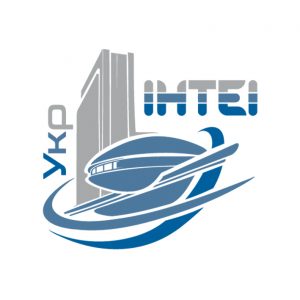Parkhomenko V. D. — Doctor of Science in Engineering, Professor, Adviser of Ukrainian Institute of Scientific and Technical Expertise and Information, 180, Antonovichа Str., Kyiv, Ukraine, 03680; +38 (044)521-00-45; iiv1director@gmail.com
Seky S. — student of Kiev National University of Trade and Economics, 19, Kioto Str., Kyiv, Ukraine, 02156; +38 (044) 513-33-48
INFORMATION AS NATURAL, UNIVERSAL CATEGORY
Abstract. The aim of the article is to formulate the definition of information as a natural and universal category. The features and significance of information as a resource of any natural and social processes are considered. The article highlights the importance of this category in the socio-economic development of society. Studies show that information always accompanies material and energy processes. To reproduce material products, first through the collection and analysis of information and in accordance with the goal, a virtual sample is created. It is the goal that allows you to select specific characteristics from the universal capabilities of information. The universality of the category “information” can be characterized by three functions. The first function is a content-material one, which is fixed by the law on information with this definition: “information is “documented or publicly announced information about events or phenomena occurring in society, the state and the environment”. The second function is information-energy (interaction with nature): nature communicates with a person by energy interaction. The third function of information consists in its definition as a source of infinite development, which can be attributed to the resource of infinite development (the law of nature is that everything starts from the head).
Keywords: information, universal category, natural category, matter, energy, development, interaction.
REFERENCES
1. Parkhomenko O.V. (2012) Informatsiia i znannia: teoretychni osnovy [Information and knowledge: theoretical foundations]. Khmelnytsky (in Ukr.): KhMTSNII Publ., 272 p.
2. Skolenko A.K. (2002) Globalnyye rezervy rosta [Global reserves of growth]. Kyiv (in Ukr.): Intellekt Publ., 427 p.
3. Chursin N.N. (1982) Populyarnaya informatika [Popular Computer Science]. Kyiv (in Ukr.): Tekhnika
Publ., 158 p.
4. Shennon K. (1963) Rabota po teorii informacii i kibernetiki [Information theory and cybernetics
work]. Moscow (in Russ.): Izd-vo inostrannoj literatury Publ., 19 p.
5. Anokhin P.K. (1973) Printsipy sistemnoy organizatsii funktsiy [Principles of the system organization of
function]. Moscow (in Russ.): Nauka Publ., 190 p.
6. Glushkov V.M. (1986) Kibernetika. Voprosy teorii i praktiki [Cybernetics. Theory and practice]. Nauka,
488 p.
7. Popova L.A. (2015) Chelovek v potoke peremen [Man in a stream of change]. Kyiv (in Ukr.): Interservis
Publ.,198 p.
8. Vernadskiy V.I. (1944) Neskolko slov o noosfere [A few words about the noosphere]. Uspekhi sovremennoy biologii [Successes of modern biology]. T. XVIII, Vol. 2, pp. 113–120.
9. Emoto M., Flige Yu. (2007) Istselyayushchaya voda. Informatsiya — vibratsiya — materiya [Healing water.
Information — vibration — matter]. Trans. from German. Moscow (in Russ.): Sofiya, 112 p.
10. Emoto M. (2007) Yenergiya vody dlya samopoznaniya [Energy of water for self-knowledge]. Trans. from
Eng. Moscow (in Russ.): Sofiya Publ., 96 p.
11. Yeremin A.L. (2005) Noogenez i teoriya intellekta [Nogenesis and the theory of intelligence]. Krasnodar (in Russ.): SovKub Publ., 356 p.

